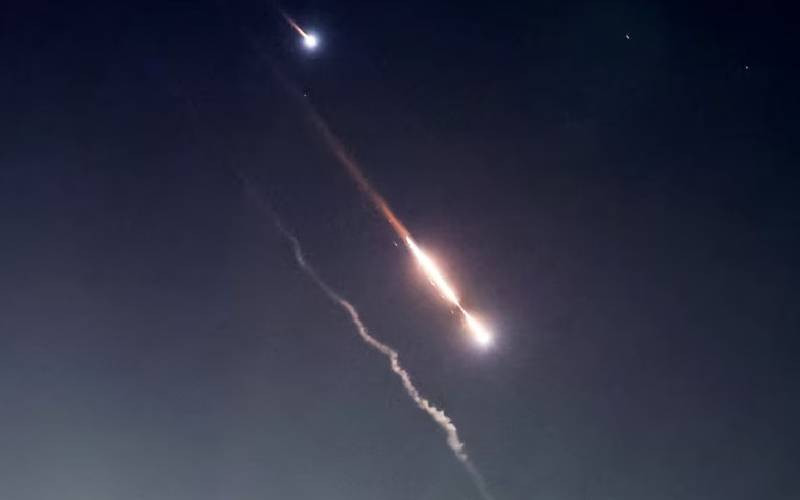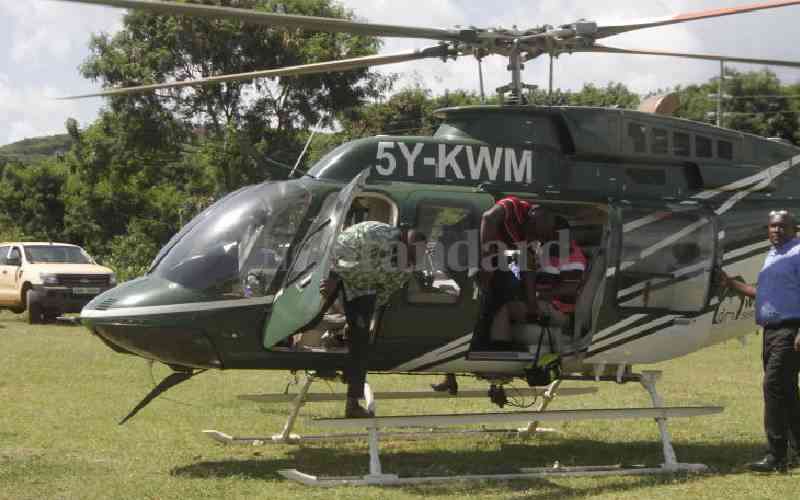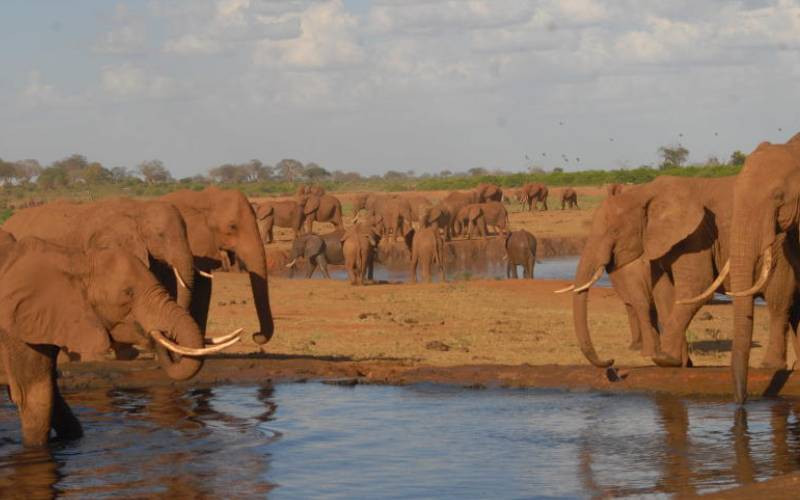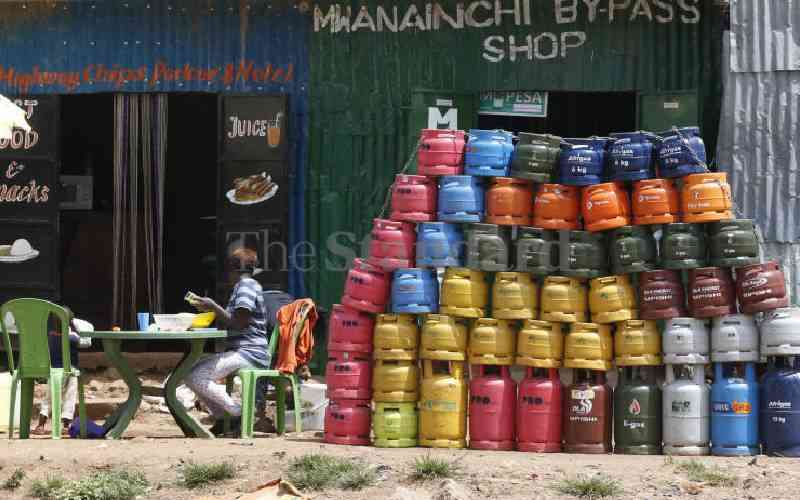By Alex Ndegwa
The Government moved to prepare Kenyans to the possibility of a long drawn-out engagement in Somalia with top security chiefs saying the military operation against Al Shabaab is not time bound.
On a day neighbouring Tanzania backed Kenya’s military campaign, Chief of the Defence Forces General Julius Karangi said Kenya Defence Forces would only withdraw from Somalia once the threat to Kenya’s security by the terrorist group is eliminated.
 |
| Kenya's Chief of the Defence Forces General Julius Karangi addresses a media briefing at the Defence headquarters in Nairobi on Saturday. Photo: Standard |
"This campaign is not time-bound. We will only bring back our warriors back to the common border with Somalia when we feel our country is safe from the Al Shabaab menace," Karangi said.
He spoke at the Department of Defence headquarters in Nairobi where members of the National Security Advisory Council held their first media briefing on the security operation against the Al Shabaab, which entered the15th day on Saturday in the anarchic Horn of Africa nation.
The press conference came even as news trickled in that eight Al Shabaab militiamen, including the militants’ leader in Afmadow had surrendered to the Transitional Federal Government (TFG) forces in Qoqani District, lower Juba region.
Somalia Report, a website that has journalists inside Somalia and extensively covers the country, reported that a TFG military officer in Lower Juba, Mohamed Hassan Buule, said the group leader Yusuf Ahmed Liibaan had told them that they decided to surrender since they could no longer tolerate Al Shabbab’s treatment of Somali citizens.
The Kenya Defence Forces are camped outside Afmadow and are poised to engage the militia in their bid to take the town.
At the press conference in Nairobi on Saturday, the Government maintained it would not negotiate with the Al Shabaab, which has claimed responsibility for two grenade attacks on Kenyan soil that have killed at least seven people, and vowed to crush the rag tag gang.
However, authorities for the first time offered amnesty to local Al Shabaab recruits, including those waging the guerrilla campaign in Somalia, urging them to surrender.
Defence Minister Yusuf Haji led military chiefs, officials from security-related dockets, and presidential aides to the news conference as the Government scrambled to resolve recent contradictory statements over Kenya’s involvement in the conflict.
Service commanders Lt- Gen J Kasaon (Kenya Army), Maj-Gen Joff Otieno (Kenya Air Force), and Maj-Gen Ngewa Mukala (Kenya Navy), and Police Commissioner Mathew Iteere were present.
Logistical support
Others were Permanent Secretaries Francis Kimemia (Internal Security) and Bitange Ndemo (Information and Communication), the Diplomatic and Political Affairs Secretary at the Foreign Affairs ministry, Patrick Wamoto, Comptroller of State House Nelson Githinji, and Sam Mwale, the principal administrative secretary in the Cabinet Office.
Tomorrow Somalia Prime Minister Abdiweli Mohammed Ali is expected to lead a delegation of his government to Nairobi to resolve the diplomatic controversy prompted by President Sheikh Sharif’s remarks that Kenyan defence forces were not welcome in Somalia.
The Somalia president has been under pressure since his reported statement that seemed to suggest he was backing down from an agreement for a joint military assault with Kenya.
In an assessment of the casualties during combat, Karangi said one soldier had died and those wounded were "not more than five".
He said the troops were ambushed because they were not engaging with a convectional army. "We expect many more of these ambushes, but this should not dampen the spirit of our troops," he added.
Three soldiers were missing, among them, two who were abducted in 2009, he added.
Karangi said it was difficult to accurately determine the casualties on the militants’ side, given it is a guerrilla outfit, but estimated "several hundreds" of Al Shabaab fighters had been killed.
The army chief declined to comment on efforts to secure the release of the soldiers in captivity, terming it a "sensitive matter that we can’t discuss in the open".
The Government dismissed suggestions the military operation launched on October 14 had been planned months beforehand, with Karangi describing it a "spur of a moment" response to provocation.
Asked what support international allies had extended to Kenya, he said the US and UK were offering logistical support such as military training, but denied their forces were directly involved in combat.
Kimemia added that the US had offered boats to patrol the sea, although some were yet to be delivered, as was the border surveillance technology to strengthen homeland security.
Karangi recounted a series of incursions into Kenya by the Al Shabaab, which he observed had recently become "bolder and more daring" in its attacks, prompting the military intervention in self-defence.
He noted this year the Al Shabaab had waged so many violations that included, "almost daily attacks on security forces in Northern Kenya", becoming so daring as to kidnap the two soldiers in July.
The Government resolve to crush the militia was further emboldened by the recruitment of desperate Kenyan youths and radicalising them, he added, "turning them into terrorists targeting their own country".
Terrorist organisation
Kimemia said authorities are profiling the youths who received military training in Somalia, adding the Government would offer amnesty to local recruits who turn themselves in.
"We urge them to surrender. We want to get to them and if they are willing to come home we would assist them," he added.
Kenya reiterated it was not at war with Somalia, but the campaign targeted the Al Shabaab with links to terrorist organisation, Al Qaeda. He said Kenya was not interested in annexing any part of the country, dismissing suggestions of the creation of a Jubaland State.
"We are not at war with Somalia. We are waging a war against the Al Shabaab, which is a non- state actor," said Karangi. When it is felt Kenya is safe enough troops, would retreat to the common border, he said.
To win the hearts and minds of locals in regions liberated from Al Shabaab control, Haji said Kenyan troops were engaging in humanitarian assistance.
"We are treating them, we are offering them drugs. But we also appeal to the international community to participate in the reconstruction of Somalia," Haji said.
Iteere said homeland security had been stepped up, noting increased patrols in major towns and surveillance on vital installations.
"However, the war on terror cannot be won by one agency, acting alone. We require the involvement of each one of us," he added.
 The Standard Group Plc is a multi-media organization with investments in media
platforms spanning newspaper print operations, television, radio broadcasting,
digital and online services. The Standard Group is recognized as a leading
multi-media house in Kenya with a key influence in matters of national and
international interest.
The Standard Group Plc is a multi-media organization with investments in media
platforms spanning newspaper print operations, television, radio broadcasting,
digital and online services. The Standard Group is recognized as a leading
multi-media house in Kenya with a key influence in matters of national and
international interest.
 The Standard Group Plc is a multi-media organization with investments in media
platforms spanning newspaper print operations, television, radio broadcasting,
digital and online services. The Standard Group is recognized as a leading
multi-media house in Kenya with a key influence in matters of national and
international interest.
The Standard Group Plc is a multi-media organization with investments in media
platforms spanning newspaper print operations, television, radio broadcasting,
digital and online services. The Standard Group is recognized as a leading
multi-media house in Kenya with a key influence in matters of national and
international interest.










